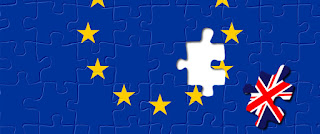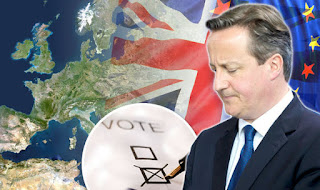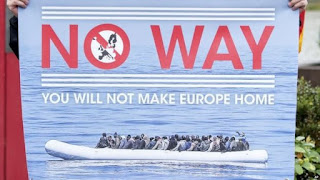Jeremy Corbyn has called for NATO to be "closed down", in mid August. The British Labour leader said the military alliance was an "engine for the delivery of oil to the oil companies" and called for it to "give up, go home and go away."
His comments quickly sparked condemnation by many defense chiefs, warning that his comments about the organisation are "weakening western civilization”.
Mr Corbyn was also criticized after he refused to say whether he would defend a NATO ally if it were invaded by Russia. (The Telegraph)
His remarks came less than one month of those of Donald Trump.
The US Republican Presidential Candidate, struck his most stridently isolationist notes recently.
He declared that NATO’s principle that an attack on one is an attack on all, should be conditional on every member country paying “their fair share”.
“I want to keep NATO, but I want them to pay,” Trump told a rally in Scranton, Pennsylvania. “I don’t want to be taken advantage of . We’re protecting countries that most of the people in this room have never even heard of," he added. (The Guardian)
Resulting from the above remarks, Ex-NATO Secretary General Anders Fogh Rasmussen has argued in a recent interview, that Putin will have free reign to launch attacks with Mr Corbyn in No.10 and loudmouth Donald Trump in the White House.
NATO's "collective defense" principle says an attack on one is an attack on all, and Mr Rasmussen claimed Mr Corbyn's inaction leaves Europe weakened.
He said: "I think his refusal to clearly state that as a possible prime minster of the UK, he would not be sure that he would defend NATO allies has really, really undermined the credibility of NATO.
The former NATO Secretary, added that it is unlikely that the Russian president would launch an open attack on the West, but that he might engage in a sinister "hybrid warfare".
Mr Rasmussen warned that tactics seen in the annexation of the Crimea might become much more common if Mr Corbyn was in charge. (Daily Star)
Meanwhile, calls from within the EU for the creation of a European army are getting stronger and more vocal, following the Brexit.
The European Commission's President Jean-Claude Juncker, declared that an EU army would enable the EU to “fulfil” its mission to the world.
He added that Europe’s image in terms of foreign policy, has been tarnished and that the continent was not taken “entirely seriously” as a major power.
Czech Republic Prime Minister Bohuslav Sobotka has backed plans for a European Union military force to help tackle the threats of extremist militants, Russian aggression and the migrant crisis.
Although he insisted the new army would not threaten NATO, but would act as a “more actionable and reliable partner”. (The Sun) Poland, Hungary and Germany have also openly expressed their support for such army recently.
The above statements and developments, indicate that Europe is about to go through significant change and reforms. And it is about time.
Our continent can not rely always on our American allies for protection. Firstly although it may cost us less,it leaves us contingent on USA. Thus we can never have our own independent foreign policy as a continent.
Secondly it is getting clear that both the UK and the US are shifting their focus away from Europe. After the Brexit, Britain could potentially cause similar ripples in NATO with Corbyn as leader, while if Trump get elected and sticks to what he says, the alliance membership will become more costly.
Not only European states will have to follow America in their wars, but also pay more into the alliance's budget and take more responsibilities, while serving US interests abroad.
Consequently, it would make sense for Europe to form its own military and establish a different kind of alliance with America. One that will be between equal and similarly engaged super armies, a North American and a European one, potentially joined by other Western nations like Australia and New Zealand.
It will not be currently wise for Europe to abandon NATO altogether, given the increasing instability that spreads right to its doorstep. We still need a back-up support from our allies in NATO and beyond.
Until we develop our own defense,we will have to get the most out of USA and the UK, their knowledge and infrastructure,before we become coordinated militarily.
With its own military, Europe will gain confidence and could eventually be taken seriously as a world power.
Right now, with Russia as well as America influencing passively or actively our internal and foreign affairs, our continent remains nothing more than a trade behemoth; the world's biggest market, without its own security or ability to defend itself.
Naturally any European citizen would wonder what benefits will such development offer him. Besides, shouldn't the world become less militarized, less hostile to each other?
Ideally, yes it should. We must start spend less in weaponry and our arms industries, while investing more in education, science and technology.
Yet sadly the world is not ideal yet. Until we can achieve peace globally, we still need an army for defense, security and dealing with natural and humanitarian disasters in Europe and beyond.
With its own army, Europe could become an alternative to America's version of world security. It should promote its own vision and voice in the world, that must of course be different from US foreign policy.
We could either counterpart or compliment America, depending our own interests, ideology and view of the world; not quietly follow our US allies.
Only then Europe can shape our world-for the better I hope-according to our values. When it gets actively involved, stops being a follower and just a market. When it's been seen by the rest of the globe as a a region that they can turn to when in need.
He declared that NATO’s principle that an attack on one is an attack on all, should be conditional on every member country paying “their fair share”.
“I want to keep NATO, but I want them to pay,” Trump told a rally in Scranton, Pennsylvania. “I don’t want to be taken advantage of . We’re protecting countries that most of the people in this room have never even heard of," he added. (The Guardian)
Resulting from the above remarks, Ex-NATO Secretary General Anders Fogh Rasmussen has argued in a recent interview, that Putin will have free reign to launch attacks with Mr Corbyn in No.10 and loudmouth Donald Trump in the White House.
NATO's "collective defense" principle says an attack on one is an attack on all, and Mr Rasmussen claimed Mr Corbyn's inaction leaves Europe weakened.
He said: "I think his refusal to clearly state that as a possible prime minster of the UK, he would not be sure that he would defend NATO allies has really, really undermined the credibility of NATO.
The former NATO Secretary, added that it is unlikely that the Russian president would launch an open attack on the West, but that he might engage in a sinister "hybrid warfare".
Mr Rasmussen warned that tactics seen in the annexation of the Crimea might become much more common if Mr Corbyn was in charge. (Daily Star)
Meanwhile, calls from within the EU for the creation of a European army are getting stronger and more vocal, following the Brexit.
The European Commission's President Jean-Claude Juncker, declared that an EU army would enable the EU to “fulfil” its mission to the world.
He added that Europe’s image in terms of foreign policy, has been tarnished and that the continent was not taken “entirely seriously” as a major power.
Czech Republic Prime Minister Bohuslav Sobotka has backed plans for a European Union military force to help tackle the threats of extremist militants, Russian aggression and the migrant crisis.
Although he insisted the new army would not threaten NATO, but would act as a “more actionable and reliable partner”. (The Sun) Poland, Hungary and Germany have also openly expressed their support for such army recently.
The above statements and developments, indicate that Europe is about to go through significant change and reforms. And it is about time.
Our continent can not rely always on our American allies for protection. Firstly although it may cost us less,it leaves us contingent on USA. Thus we can never have our own independent foreign policy as a continent.
Secondly it is getting clear that both the UK and the US are shifting their focus away from Europe. After the Brexit, Britain could potentially cause similar ripples in NATO with Corbyn as leader, while if Trump get elected and sticks to what he says, the alliance membership will become more costly.
Not only European states will have to follow America in their wars, but also pay more into the alliance's budget and take more responsibilities, while serving US interests abroad.
Consequently, it would make sense for Europe to form its own military and establish a different kind of alliance with America. One that will be between equal and similarly engaged super armies, a North American and a European one, potentially joined by other Western nations like Australia and New Zealand.
It will not be currently wise for Europe to abandon NATO altogether, given the increasing instability that spreads right to its doorstep. We still need a back-up support from our allies in NATO and beyond.
Until we develop our own defense,we will have to get the most out of USA and the UK, their knowledge and infrastructure,before we become coordinated militarily.
With its own military, Europe will gain confidence and could eventually be taken seriously as a world power.
Right now, with Russia as well as America influencing passively or actively our internal and foreign affairs, our continent remains nothing more than a trade behemoth; the world's biggest market, without its own security or ability to defend itself.
Naturally any European citizen would wonder what benefits will such development offer him. Besides, shouldn't the world become less militarized, less hostile to each other?
Ideally, yes it should. We must start spend less in weaponry and our arms industries, while investing more in education, science and technology.
Yet sadly the world is not ideal yet. Until we can achieve peace globally, we still need an army for defense, security and dealing with natural and humanitarian disasters in Europe and beyond.
With its own army, Europe could become an alternative to America's version of world security. It should promote its own vision and voice in the world, that must of course be different from US foreign policy.
We could either counterpart or compliment America, depending our own interests, ideology and view of the world; not quietly follow our US allies.
Only then Europe can shape our world-for the better I hope-according to our values. When it gets actively involved, stops being a follower and just a market. When it's been seen by the rest of the globe as a a region that they can turn to when in need.

















